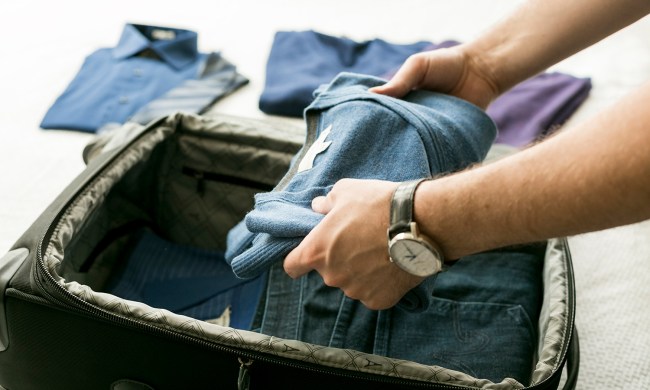Modern Nomad is a weekly column dedicated to mobile gear, must-see world destinations, tips for life on the road, and traveling better through technology.
Roughly twenty percent of travelers have a fear of flying so, if you too are an aerophobic, you’re far from alone. Just like any irrational fear, there are countless ways to overcome a fear of flying. From simple education to hardcore chemicals, here are just a few of our favorites.
Understand Your Flight
Most travelers know little about what’s actually going on during their flight. This ignorance can trigger a great deal of anxiety in anyone who needs to be in control to feel completely comfortable. While it’s not likely to quell the fears of those with high anxiety, this safety video from Virgin Atlantic explains the sounds and feelings that fliers experience on almost every flight. Understanding the mechanics of how a modern plane is supposed to work and sound can help alleviate that feeling of uncertainty. Downside: will likely only help the most minor aerophobics.
Related: These Innovations Make The Future Of Air Travel Look Pretty Fly
Check the Turbulence Forecast
For many travelers, the root of their aerophobia stems from not knowing if or when they’ll hit turbulence. The Turbcast app ($1.99 for iPhone) was designed by a pilot and uses many of the same forecasting models used by the airline industry to predict air pockets, bumps, and the general level of turbulence during a flight. Downside: this knowledge may only worsen the fear and create further anxiety for severely phobic fliers.
Chat Up Your Flight Attendants
For some flight-fearing travelers, their anxiety stems from a fear of breaking down (literally or not) and humiliating themselves in front of a plane full of strangers. Sharing your fears with the onboard flight attendants can go a long way toward alleviating this symptom. Flight crews are professionally trained to assist with all degrees of aerophobia and to ease passengers’ concerns. Downside: this requires a sympathetic and understanding flight crew (which seems increasingly rare these days).
Keep an Eye on the Flight Crew
Today’s flight attendants fly thousands of miles on an almost daily basis. With this experience comes the knowledge of what sounds and movements to expect on a “normal” flight. Anytime there’s a sudden bump, noise, or movement that just doesn’t feel right, look to the flight crew. If they’re casually chatting with passengers, serving drinks, and generally appearing unfazed, there’s a good chance there’s nothing to worry about. The pilots remain in constant contact with the crew throughout the flight to alert them of any upcoming turbulence. As a general rule, if the drink cart is out, everything is probably just fine. Downside: like every other method here, it’s not foolproof, as the crew can’t always predict upcoming turbulence.
The Rock Star Method
Of course, the easiest (and least healthy) method is to wash away your fears chemically. Alcohol — particularly on long-haul, international flights — is often free and free-flowing. For those with only a casual or moderate fear of flying, simple, over-the-counter supplements like melatonin are another alternative that can help you sleep through the flight and the fear. Harder prescription drugs like Xanax and other anti-anxiety meds will assist even the most fearful of fliers. Downside: alcohol and most OTC and prescription drugs will only exacerbate that already awful jet lag.
(Photo via Flickr)



